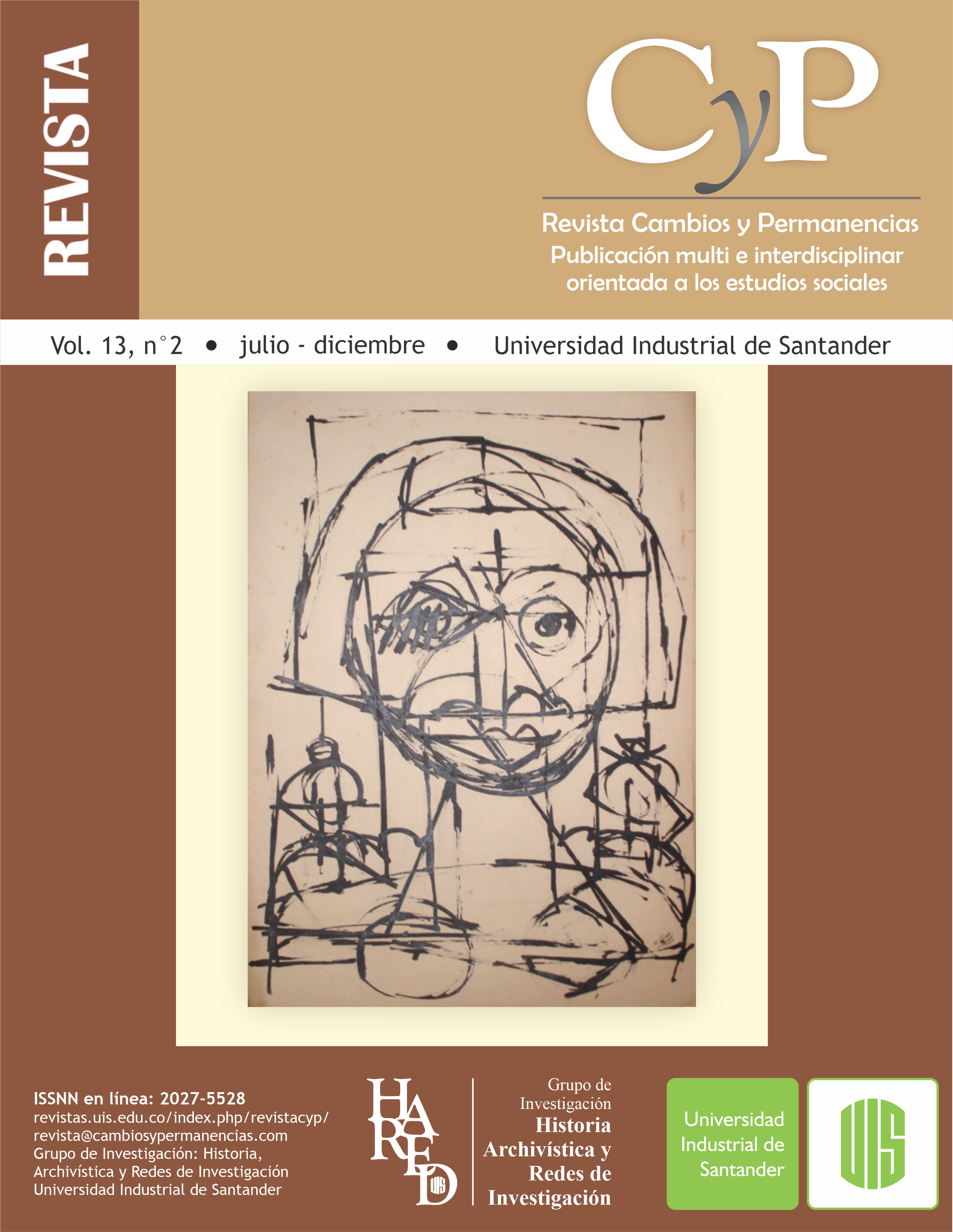Social mobilizations during the Government of Iván Duque. Colombia, 2018-2022
Published 2022-11-27
Keywords
- Colombia,
- social mobilizations,
- protest,
- strike,
- Iván Duque
How to Cite
Copyright (c) 2022 Revista Cambios y Permanencias

This work is licensed under a Creative Commons Attribution 4.0 International License.
Abstract
This article analyzes social mobilizations during the government of Iván Duque (2018-2022) in Colombia. He maintains that these great collective actions are part of the same protest cycle and are explained by factors of the political context in which they develop. In this scenario there are two definitive processes: the emergence of demands, previously silenced by the war, thanks to the peace negotiations between the Government of Santos (2010-2018) and FARC, and the decline of the uribista hegemony in the conduction of the State. These processes alter the dynamics of institutional policy, political representation and coalitions. Thus, the socioeconomic crisis is a necessary but insufficient factor to explain the mobilizations. Despite the costs that a high repression of the protest brought, citizens chose to mobilize because no other channel had available to process emerging social demands, not represented by the Uribista right, the center or the political left.
Downloads
References
- Archila, M. (2002). Colombia en el cambio de siglo: actores sociales, guerra y política. Nueva Sociedad, 182, 76-89.
- Cruz Rodríguez, E. (2012). La Mane y el paro nacional universitario de 2011 en Colombia. Ciencia Política, 14, 140-193.
- Cruz Rodríguez, E. (2017) Caminando la palabra. Movilizaciones sociales en Colombia (2010-2016). Desde Abajo.
- Godás I Pérez, X. (2007). Política del disenso. Icaria.
- McAdam, D. (1999). Orígenes terminológicos, problemas actuales, futuras líneas de investigación. En D. McAdam, J. McCarthy y M. Zald (Eds.), Movimientos sociales: perspectivas comparadas. Itsmo.
- McAdam, D., McCarthy, J. y Zald, M. (1999). Movimientos sociales: perspectivas comparadas. Oportunidades políticas, estructuras de movilización y marcos interpretativos culturales. Itsmo.
- McAdam, D., Tarrow, S. y Tilly, Ch. (2005). Dinámica de la contienda política. Hacer.
- McCarthy, J. D. (1999). Adoptar, adaptar e inventar límites y oportunidades. En D. McAdam, J. D. McCarthy y N. Zald Mayer (Eds.), Movimientos sociales: perspectivas comparadas. Oportunidades políticas, estructuras de movilización y marcos interpretativos culturales (pp. 205-220). Itsmo.
- Rivas, A. (1998). El análisis de los marcos: una metodología para el estudio de los movimientos sociales. En P. Ibarra y B. Tejerina (Eds.), Los movimientos sociales. Transformaciones políticas y cambio cultural (pp. 181-215). Trotta.
- Tarrow, S. (1997). El poder en movimiento. Los movimientos sociales, la acción colectiva y la política. Alianza.
- Thompson, E. P. (1995). Costumbres en común. Crítica.
